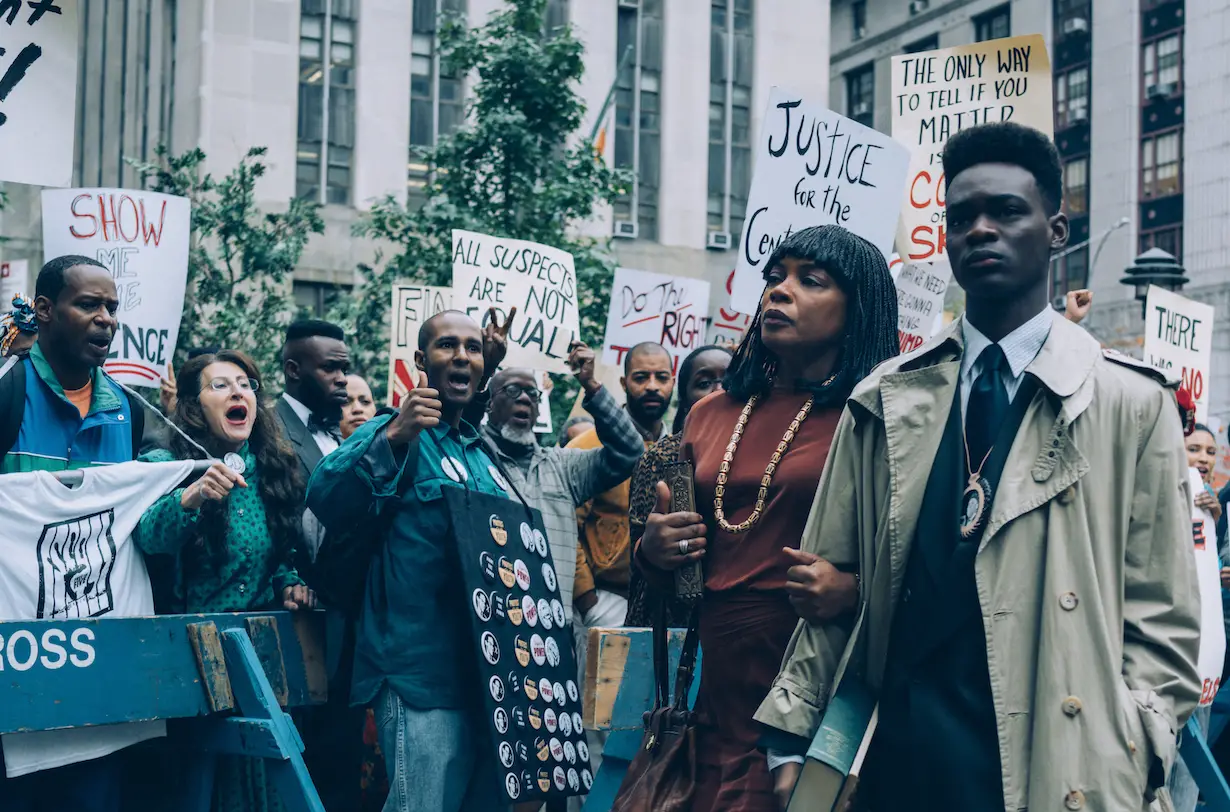Written and directed by Ava DuVernay, Netflix released the four-part drama miniseries “When They See Us” on May 31, 2019. The captivating show retells the true story of what came to be known as the Central Park Jogger case, where five young boys were wrongly convicted of the brutal beating and rape of Patricia Meili in the spring of 1989.
https://www.youtube.com/watch?v=u3F9n_smGWY
While the tragedy took place decades ago, Ken Burns also created a documentary in 2012, showcasing the uncovering of the Central Park Jogger case. In a recent interview, the filmmaker said he hoped the documentary would curate change. “It’s [wrongful convictions] all too common in the United States,” Burns said, “and so the Central Park Five has to be emblematic for a lot of other people whose stories aren’t told.”
DuVernay brought the truth back to screens across the globe and reintroduced the flaws hidden in the American justice system.
The Central Park Five were the basis of the heart-wrenching show. Antron McCray, Yusef Salaam, Korey Wise, Kevin Richardson and Raymond Santana Jr. were recently exonerated of their criminal charges in 2002 when Matias Reyes admitted to the crime. The men received reparations from the state of New York City 10 years later.
However, DuVernay’s series leaves its audience with a lot of information to digest.
1. The media has more power than society gives it credit for.
In “When They See Us,” DuVerney depicts the reality of how the media and press are capable of shaping a particular image or outcome of a situation. The first episode shows how much of the 1989 case happened hastily because of the pressures of releasing statements to the media and giving explanations for how such atrocities could occur in a place where people are meant to feel safe.
The media may not have read off the charges in court, but DuVernay makes it clear that the press had a responsibility to deliver the truth and provide fair coverage of the Central Park Five.
“This film asks to think about the news,” DuVernay said in an interview with Trevor Noah, “At that time … 89 percent of the news did not use the word alleged. It was just this kind of rush to judgement on the part of politicians, the press but also private citizens who shaped the conversation.”
The media headlines and accusatory stories served America not one but five people to blame for what happened to Meili, and it is now clear the public outcry for justice did not favor the boys’ cases.
The show further demonstrates the fact of how proper media coverage is still a relevant issue today, including, but not limited to, fake news.
2. Maybe cancel culture is not as new as millennials think.
“When They See Us” displays the lives of the exonerated men post-incarceration and what starting over was like for each of the individuals. It leaves the audience to grapple with their challenges of finding decent jobs, building healthy relationships and avoiding getting back into trouble once on parole.
For example, one scene shows a moment between Santana and his father’s wife, Elena Santana, where tensions rise between the two. In the midst of an altercation, she calls Santana a rapist despite his father’s words supporting his innocence. While this is simply one scene, most of the series deals with similar difficulties the men experience while trying to restructure their lives after being convicted.
In an interview with Oprah Winfrey, Richardson voiced his feelings at the time of the trial. “I literally thought my life was over right in front of me …” he said. “The whole world hated us. We felt that.”
Before the exoneration of the five men, some people still believed they were guilty based on the confession tapes released in their court trials.
3. Police corruption existed then, too.
In 1989, the five boys were brought to the precinct along with over 40 others for questioning. Although they were not all participants of the rioting and beatings in Central Park, the police and detectives detained them for more than 48 hours.
McCray, Santana, Salaam, Wise and Richardson all went without rest and food until the authorities received signed confessions from them. The police questioned the minors and pitted them against each other without the presence of their parents. The miniseries also portrays the unfortunate circumstances of Wise, who was not able to read what he was signing.
These injustices are believed to be the reason the men were initially charged.
Linda Fairstein, a former prosecutor, was the ringleader of the illegal practices of questioning the minors without their parents. DuVernay captures Fairstein’s persistence to pin the sexual assault on not one but all of the boys, despite the absence of evidence linking any of them to the case. However, the director sought to point out the injustice pervasive in the system.
“It’s not about her [Fairstein],” DuVernay said. “She is a part of a system that’s not broken. It was built to be this way. It was built to oppress. It was built to control. It was built to shape our culture in a specific way that kept some people here and some people there.”
Richardson commented on the state of the justice system now as well. “Here we are, thirty years later,” he said. “Not too many things have changed.”
4) We are all accountable for what happens next.
Others have covered the Central Park Five before, but “When They See Us” was made as a way to reach an even wider audience with its release on Netflix. DuVernay said that she created the miniseries to hand over the right tools to society as a catalyst for change.
“Our real goal is to be able to say, ‘Go, America. Let’s do this. Let’s change this,’” the director said on the Winfrey Special. “And you can’t change what you don’t know.”
It’s easy to get lost in the series for a few days, but it’s more difficult to hold officials and higher authorities responsible for the changes the world wants to see afterwards. In the interview with Winfrey, Salaam said that the series should have been an opportunity for the world to see that these issues do not stop with the exonerated five.
“I think for young people,” Salaam states, “for the future generations, that are going to absolutely change this system — that’s what gives me hope.”
















